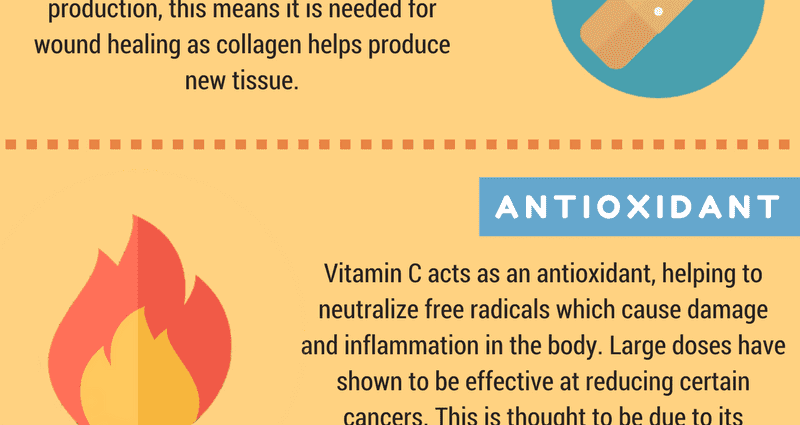Turinys
We are used to thinking that vitamin C boosts immunity and is especially important during a period of rampant viruses and bacteria. And we don’t really think about the mechanism of action of this element on our body.
Vitamin C has many more beneficial properties than just protecting us from the attack of disease. It is both an antioxidant, and a regulator of metabolism, and a guarantee of preserving our youth, removing toxins and much more.
Vitamin C is destroyed by heat, light and smog. Therefore, the most important thing is not to store foods containing vitamin C peeled or sliced for a long time – they should be eaten immediately or added to the dish. Also, defrost such foods quickly.
So, what vitamin C is capable of, getting into your body:
- Neutralize free radicals that are formed in the body and provoke the onset of cancer.
- Increase collagen protein synthesis, allowing bone, connective tissue to develop, cartilage and teeth to grow and form properly in children.
- Helps absorb iron.
- Takes part in the processes of hematopoiesis and, in principle, normalizes the work of blood vessels.
- Makes the process of tightening wounds more effective, promotes the regeneration of the skin.
- Vitamin C is involved in the synthesis of several hormones.
How long vitamin C can you take per day
For children, the daily dose of vitamin C is 35-45 mg, for adolescents – 50-60 mg. Adults can also consume 60 mg of vitamin C per day, but pregnant women should increase this figure to 100 mg.
The main consequences of a lack of vitamin C in the body are a decrease in immunity, indigestion, anemia and bleeding gums. Vitamin C is better absorbed when combined with calcium and magnesium.
Sources of Vitamin C
There is a lot of ascorbic acid in kiwi, rose hips, red peppers, citrus fruits, black currants, onions, tomatoes, leafy vegetables (lettuce, cabbage, broccoli, Brussels sprouts, cauliflower, etc.), liver, kidneys, potatoes.
The harm of vitamin C
When vitamin C is consumed in large quantities, an allergic reaction can develop – itching and rash on the skin. With gastritis and ulcers, this vitamin in large quantities can also be harmful – it causes an exacerbation of conditions. And in a healthy person, an overdose of ascorbic acid can cause indigestion, diarrhea, abdominal pain and muscle cramps.










